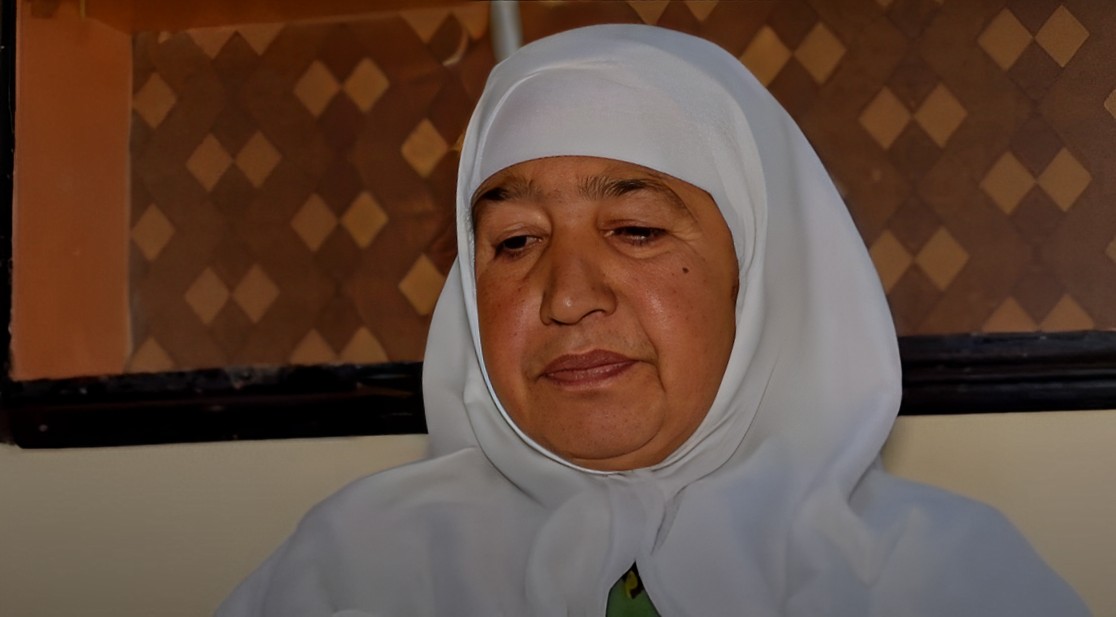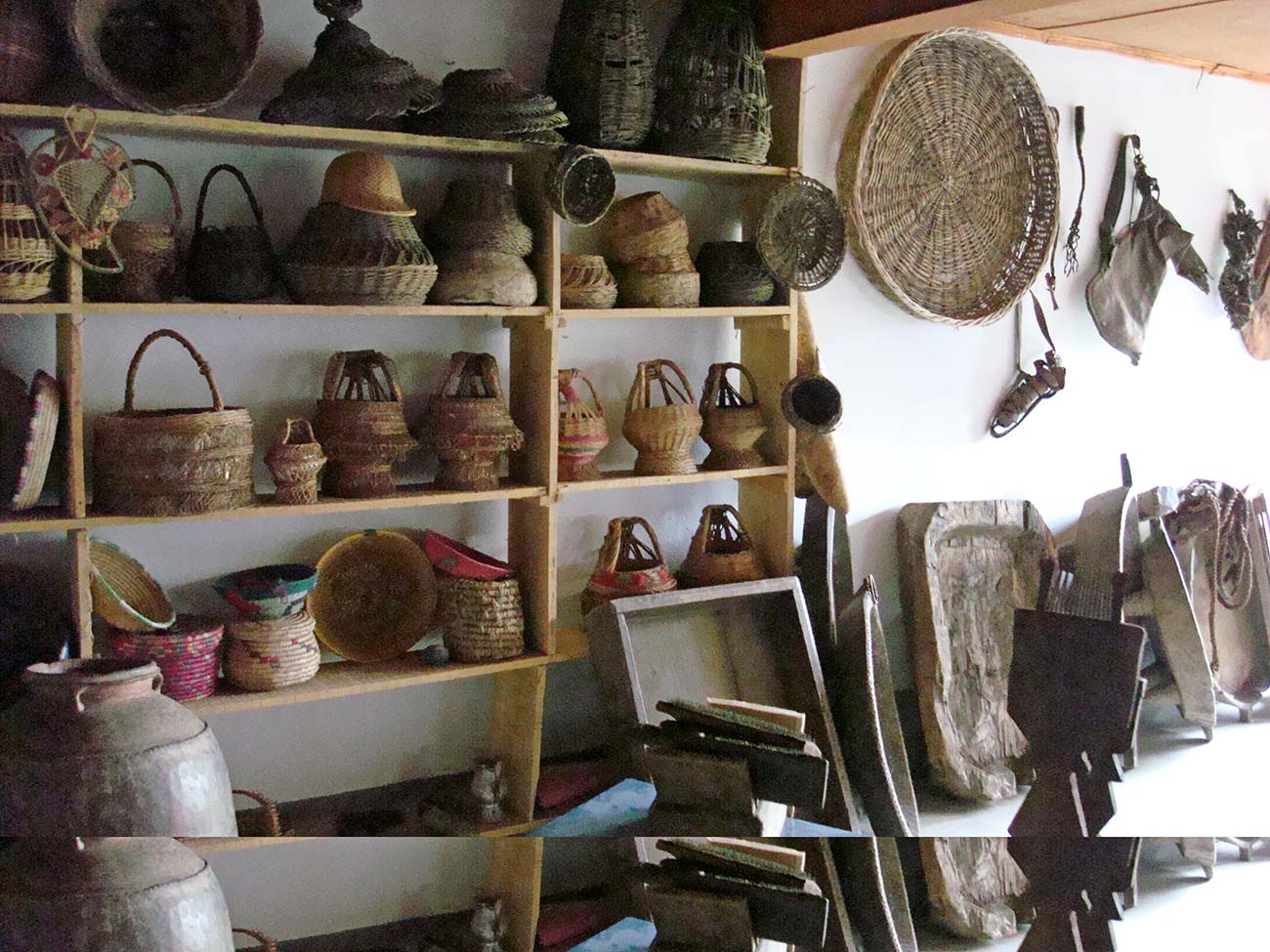An unlettered woman in north Kashmir has been a poet for more than 30 years. What distinguishes her from the tribe is that she writes it in her own language, reports Raashid Andrabi
In the still village of Poshwar settled in Bandipora periphery, an enchanting narrative of unparalleled poetic brilliance has taken root. At the centre of this narrative stands Zareefa Jan, a 65-year-old Sufi poetess whose poetic journey defies conventional norms and transcends the boundaries of formal education.
For more than 30 years, Jan has been weaving the threads of her poetry, despite never having stepped foot inside a classroom. Her remarkable journey commenced in an extraordinary manner, nearly three decades ago, as she embarked on a routine task of fetching water from a nearby stream. She slipped into the water for a few moments and safely came out of it. On that fateful day, she found herself engulfed in a moment that felt different as if she had embarked on a journey into the esoteric world of Sufi spirituality. It was in this transformative instant that the wellspring of her poetic expression was unleashed, and words and verses flowed from her soul as effortlessly as the stream’s waters meandering through her village.
Upon her return from the river, she was compelled to seize a pencil and a sheet of paper, and thus, her extraordinary odyssey commenced. “Prior to that moment, the very concept of poetry eluded me, as I had never encountered it before,” she confided with a gleam of nostalgia in her eyes. “Yet, from that day forth, innumerable poems and ghazals have flowed from within me.”
Peculiar Language
Jan’s innovative method of preserving her literary creations is as unique as the origin of her poetic journey. She fashioned a distinctive “language of circles,” a visual code that served as a repository for her poetic expressions, remarking, “It is a harmonious visual code, and I find it remarkably accessible.” These circles, each endowed with a singular significance, encapsulated her poetic narratives, infusing them with her recollections and emotions.
Buoyed by the courage born of her spiritual voyage, Zareefa sought the guidance of her Murshid, Masood Sahiba, another woman deeply connected to the world of Sufism. Under this guidance, she delved deeper into the realms of her creativity. This connection proved to be a deep well of wisdom, as evidenced by her Murshid’s words:
“Bateh Lej Yei Ghreakh, Yei Nas,
Mukhteh Yei Faleh FalehTchakravneh.”
Her commitment deepened, and despite her initial trepidation, Zareefa forged ahead, meticulously documenting a multitude of poems in her unique circle-based script. Each circle became a vessel, preserving her creative essence and spirituality. “I was initially apprehensive about what I had experienced, and I confided in my Murshid that I didn’t wish to lose my senses like I did on that first day,” Zareefa remembers. “She reassured me, and from that moment onwards, I continued to pen my couplets.”
Among the many poems encoded within her circular creations, one of her earliest masterpieces stands out:
“Pan Suran Aam Yawun
Ye Lalwunmeiw Thow Tham Naar.”
With an unquenchable desire to share her work with a wider audience, Zareefa’s ultimate dream has materialised into reality. Collaborating with her granddaughter, who is still pursuing education, they are translating her circle-script poetry into book form, presenting both the original circular script and its conventional counterpart. “I yearn for my poetry to be cherished by all who encounter it,” Zareefa confides, her words resonating with the profound sentiment that pervades her artistic journey.
Rahi’s Acknowledgement
With each meticulously crafted circle-scripted poem, Zareefa’s unique method began to capture the attention of Rehman Rahi, a respected figure in Kashmiri poetry. Recognising the extraordinary nature of her journey, Rahi bestowed upon her the title, Zareefa Jan, a name that encapsulates her unwavering dedication and artistic brilliance. Among her earliest creations was a couplet that succinctly captured the essence of her poetic journey.
Zareefa is frequently invited to Mushaairaa’s (poetry reading events) where she presents her poetry. “I attend these gatherings, and the audience listens attentively to my work, appreciating it wholeheartedly,” she admits.

Jan reveals that it is often during the evening and the midnight hours that inspiration strikes, referring to her poetry as kalaam. “That is why I always keep a notebook and pen with me, ready to jot down the verses as soon as they manifest.” Initially, her daughter, who held a master’s degree in the Arabic language, assisted her in transcribing her poetry. Tragically, her daughter passed away, resulting in the loss of a significant portion of her work. Later, her granddaughter took it upon herself to help Zareefa in documenting her verses.
In addition to her daughter and granddaughter, Zareefa also acknowledges her husband as a pillar of support in her journey. “Without the unwavering support of my husband, I would not have reached this point. He has been by my side every step of the way.”
Pan Suran Aam Yawun Ye
Lalwunmeiw Thow Tham Naar.
300 Poems
Today, her books hold nearly 300 poems encoded within enigmatic circles. Zareefa Jan’s unique preservation approach has captivated experts who find her ingenuity unprecedented in the world of poetry.
While some sceptics question her reliance on the coded circles, in Kashmir’s literary circles, the consensus grows that Zareefa Jan may indeed be the world’s sole poet who writes and reads her poetry in the language she devised.















